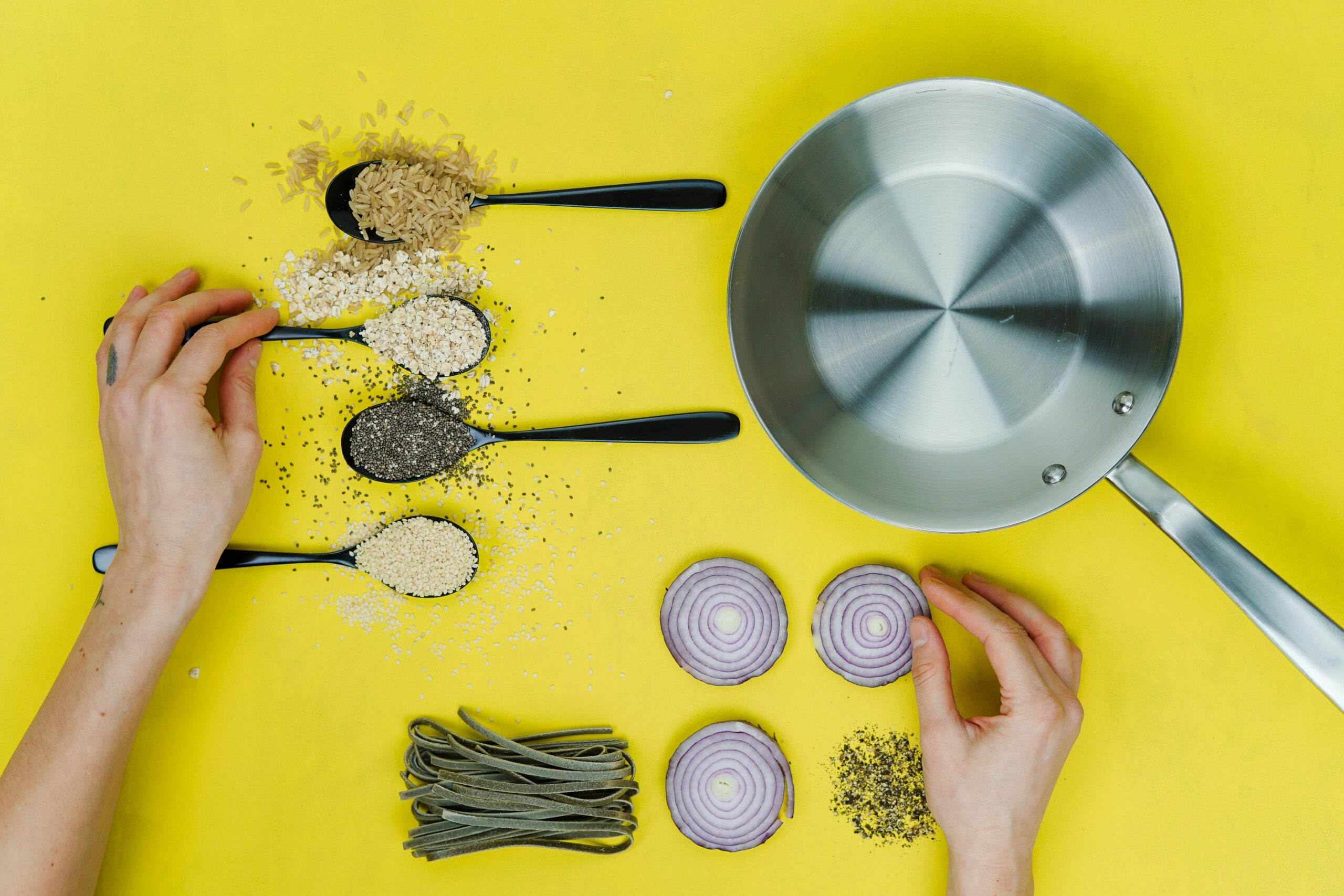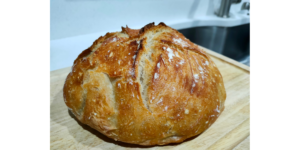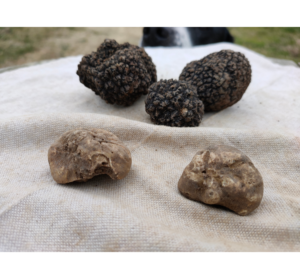I often visit different friends’ homes around the world (whom are not in the food industry) and when I cook for them I notice that many of the basic ingredients that are needed for proper cooking are missing from their kitchens. Not having the basic ingredients when you cook is like being a great mechanic without the correct tools for the job or a surgeon without the correct instruments for a surgery…which can result in disaster.
Knowing exactly what types of grocery or food items you should always have on hand in your kitchen allows you to streamline your shopping and be more efficient with your time when are in the supermarket. Most importantly, with just a few basic items, you can make dozens of delicious meals and you’ll always be prepared to whip together a meal at any given time.
Let’s get started!
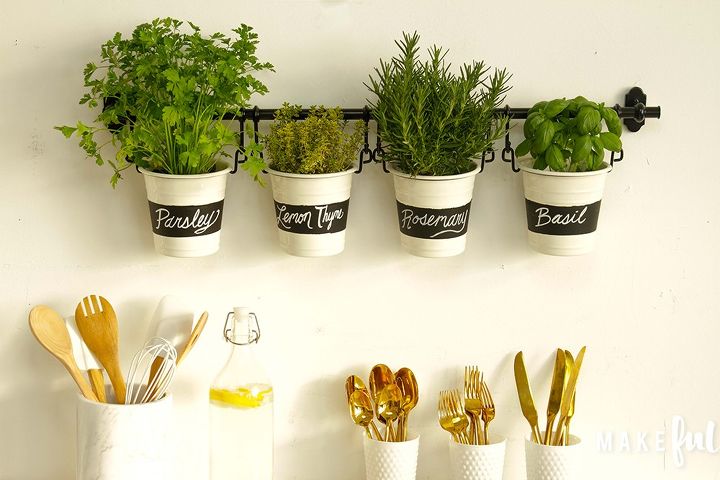
Herbs, Spices & Oils
Fresh herbs such as Basil, Rosemary, Thyme, Oregano, Sage and Italian Parsley (growing on your balcony, patio or garden) are probably the single greatest contributors to flavor in your dishes. Fresh spices should always be added towards the end to maximize their flavor.
Salt
A staple in nearly every dish. I would carry 2-3 types of salt in your kitchen so that you can have it in different forms for different applications:
- Sea Salt or Pink Himalayan in a grinder for finishing
- Kosher Coarse Salt for marinades or rubs
- Table Salt for making breads and many applications to add salt in a soup etc.
Pepper
Always needed and must be in a grinder as it releases the maximum flavor! Do not purchase pre-ground pepper. You can purchase the whole peppercorns, but I would stick to black.
Sugar
Plain sugar is needed at all times for different sauces, breads, doughs and/or dressings. I also prefer to use honey many times in lieu of sugar.
Butter
I would always buy unsalted; my pick is KerryGold or an artisan real butter. Butter should and could be used to saute steaks and most cooking applications when mixed with olive oil.
Olive Oil
At all points in time and I would only use Extra Virgin Olive Oil; that applies to all the guidelines as written about in my previous post about olive oil.
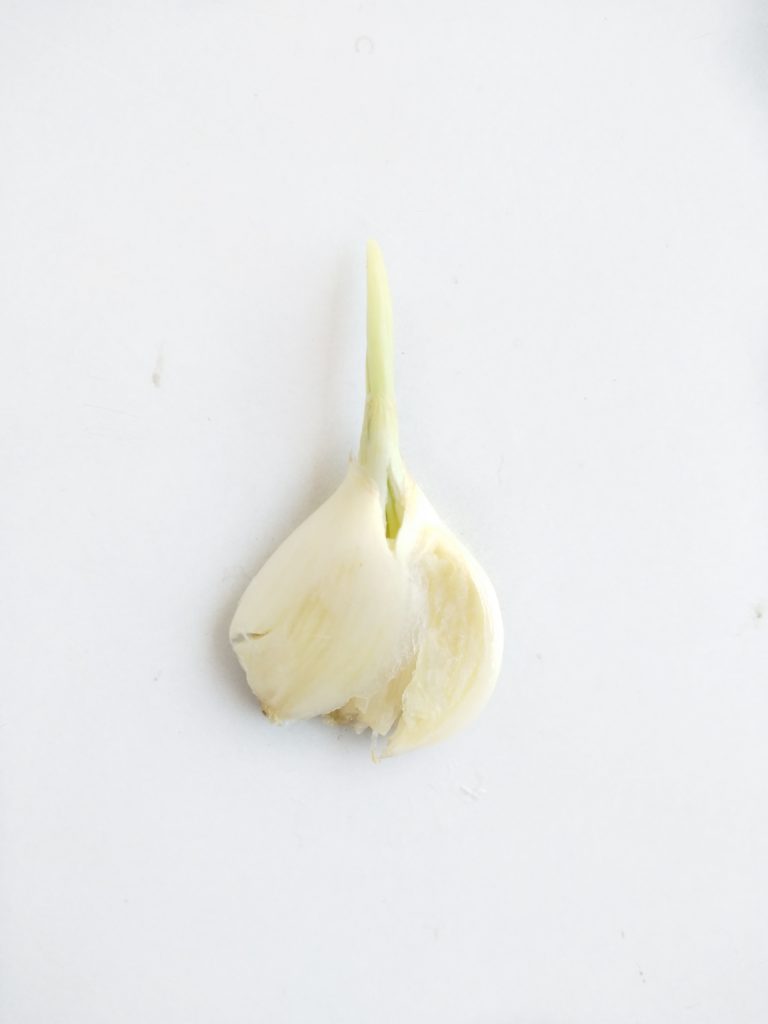
Garlic
Absolutely mandatory and it must be whole clove! Powders and pre-minced is cheating and doesn’t add the same flavor to the dish.
Vegetables
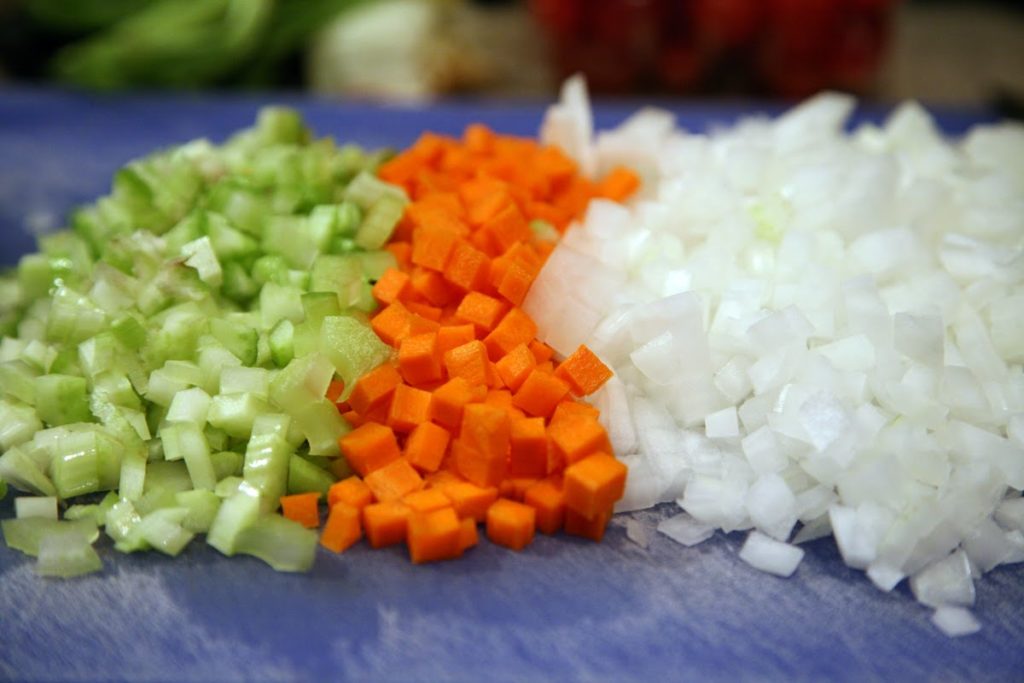
Carrots, Celery & Onion
This combination is the Holy Trinity of French cuisine which has influenced many other cuisines around the world. This mixture of equal parts diced is known in France as Mirepoix. The basis of nearly every sauce and/or soup begins with these three ingredients. Sautéing these items together can add extra depth and flavor to any dish. Onions by themselves are probably the single most important ingredient in the kitchen.
Tomato
I would always have two different types of tomatoes on hand in your kitchen:
- Cans of whole peeled Roma, San Marzano or plum tomatoes without spices. These can be used to make sauces for pizza and more or to just add depth to soups, chili or sauces.
- Cherry or grape tomatoes are perfect for snacking and salads. They tend to be sweeter so I like these to add acidity or umami to many dishes for balance.
Green Leaf Vegetables
Dark green leaf vegetables like kale or spinach. It has more nutrients, vitamins and flavor than iceberg or romaine. You can use it to make salads or it can be added to eggs, pastas, soups and beans.
Acid
Vinegar
Vinegar comes in several forms. It has a great shelf life so you need not worry here as it can sit in the pantry for some time and be used for cleaning too!
- White Vinegar for cleaning and marinades. It can always be used to remove stains in clothing.
- Balsamic Vinegar can be used to finish many dishes and/or used in the marinade or salad dressing.
- Apple Cider Vinegar can be used in many marinades and sauces.
You can also make your own red or white wine vinegar with wine that is going bad by sticking a starch like spaghetti in it.
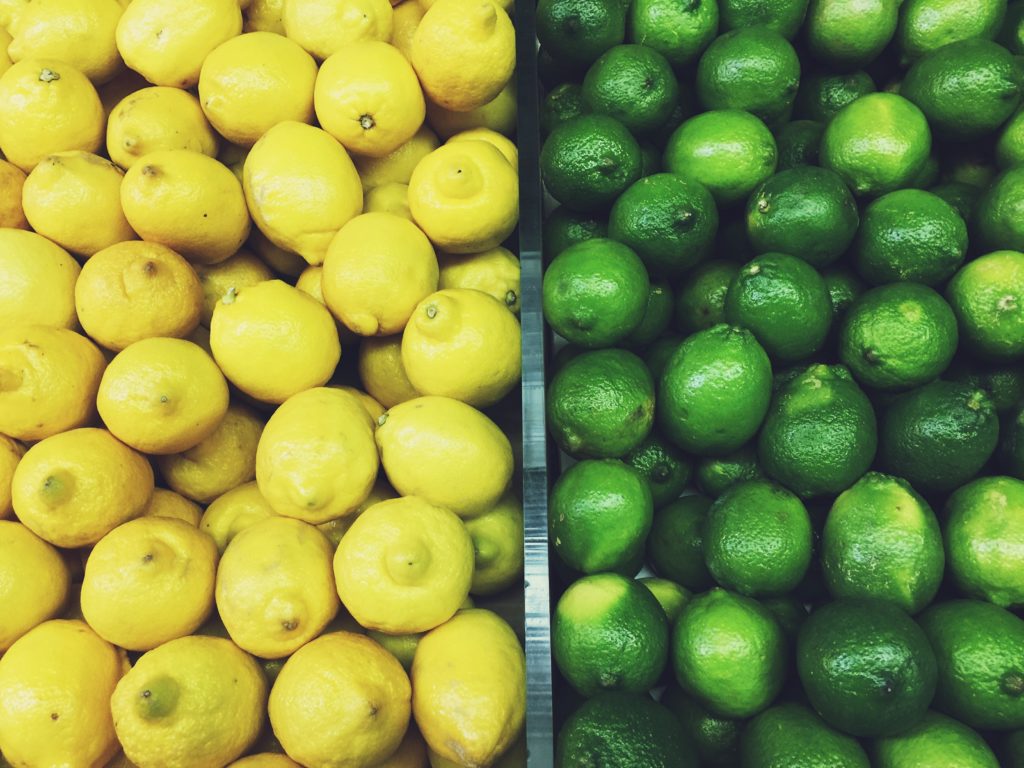
Citrus
These are the basis of many marinades or extra flavor in sauces. Acidity has a prevalent use in balancing flavors within dishes. Also if you always have lemon or lime on hand, you can make your own juice as its very healthy for removing toxins.
Dairy
Eggs
I prefer organic eggs as they add a richer, orange color. They can be used to make pasta, breads, omelettes and batter for frying or just plain eggs as they are rich in protein.
Cheese
A salty or nutty aged cheese like Parmigiano Reggiano or Pecorino at all times so that you can grate it over sauces, pizzas, pastas, eggs, salads or just for snacking with wine. Please don’t skimp here! Pay attention to the label and make sure you actually getting an imported product.
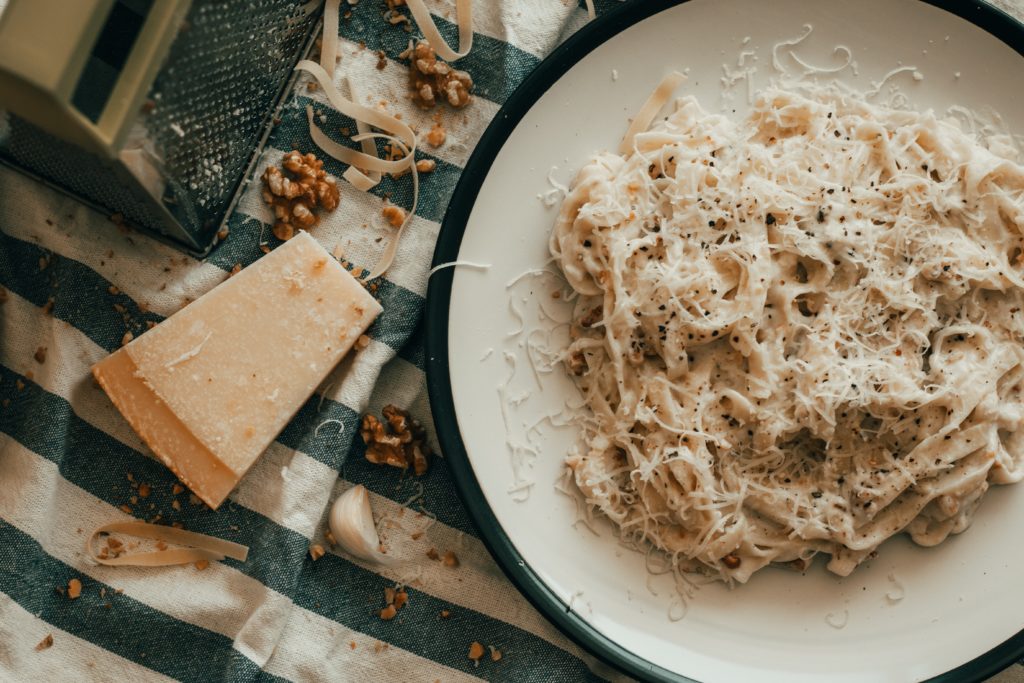
Additional Must-Haves
Active, Dry Yeast
Yeast can always be used to make breads and homemade doughs to create your own pizzas, breads etc..
Flour
I would recommend having three different types on hand at all times:
- Unbleached All Purpose Flour. Can be used to make many different types of breads, Also used for developing a crust for frying. Also used for developing richer braised dishes by coating your protein in it.
- “00” Flour for making pizza and different types of pastas. Italy is highly regional and different pastas have various flour types and egg content.
- 100% Semolina Flour for making other types of pastas, but bear in mind that there are many varying types and these two types of flour will cover you for most pasta applications.
Rice
Rice in any form for whatever your preference is as it can be added as a starch or it can be the main star of the dish.
Bacon/Pancetta
A great salted, cured meat that can be an excellent option for adding fat and salinity to any dish. It should be used in moderation as to dominate the dish.
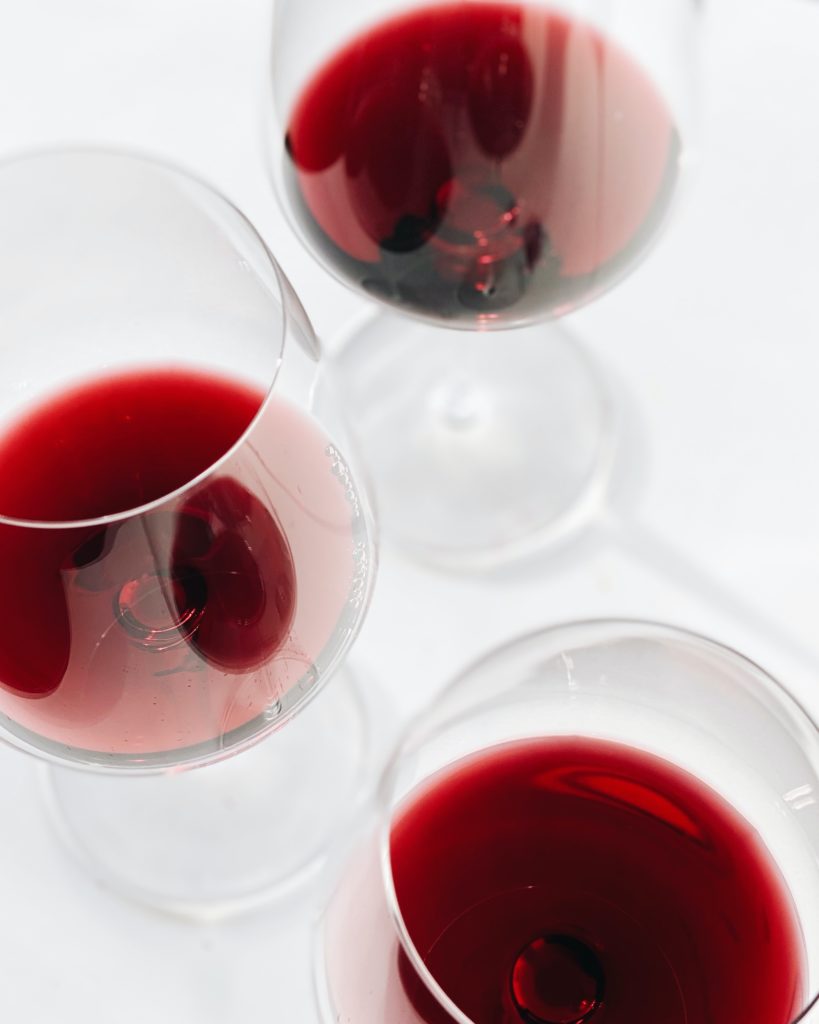
Wine
It is absolutely imperative to have bottles of dry white wines and red wines on hand for drinking and to add flavor to dishes. The type of wine you choose isn’t as important as the flavor profile such as dry and balanced fruit with great acidity.
Happy shopping!
Drop me a line if you want me to design a dinner and cook for you sometime.
